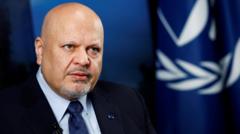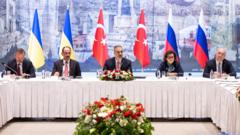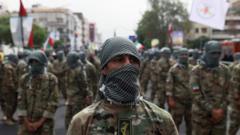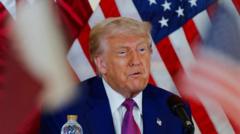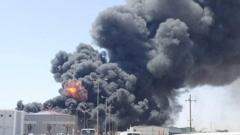In a striking contrast to his domestic strategy of targeting political opponents, President Trump's recent tour in the Middle East reflects an unexpected optimism over former foes. During his speeches, he emphasized the principle of moving past past enmities in the pursuit of peace and economic stability. His willingness to engage with Iran and offer restoration for Syria marks a significant shift in his foreign policy agenda, something unexpected following years of tension and conflict.
Trump's Bold Approach: A New Chapter in Middle Eastern Relations

Trump's Bold Approach: A New Chapter in Middle Eastern Relations
In a strategic pivot, President Trump embraces reconciliation with former adversaries during his foreign tour while maintaining a tough stance at home.
During his latest foreign visit, which marks the kickoff of his second presidential term, President Trump made headlines with speeches in the Middle East that convey a reconciliatory vision for the future. In both structured speeches and more casual conversations, he emphasized his desire to move beyond past grievances in favor of fostering peace and securing lucrative economic deals.
"Throughout my career, I've always believed that enmity is not a permanent state," Trump asserted at the Saudi-U.S. Investment Forum, indicating a possible thaw in U.S.-Iran relations despite earlier assassination plots that were purportedly linked to the Iranian government—something Tehran has consistently denied.
Adding further intrigue to his foreign policy, the President announced a significant easing of U.S. sanctions on Syria, which opens the door for economic recovery in a nation long plagued by conflict and international isolation. His comments underscore an evolving stance that prioritizes diplomatic relations over historic animosities.
As his domestic agenda continues to amplify investigations against political critics and consolidate executive power, the juxtaposition of Trump’s approach abroad reveals the complexities of his political strategy as he seeks to craft a narrative of peace in a volatile region. The unfolding dynamics may signal a transformative period in U.S. international relations, challenging expectations of permanence regarding alliances and adversarial roles.




